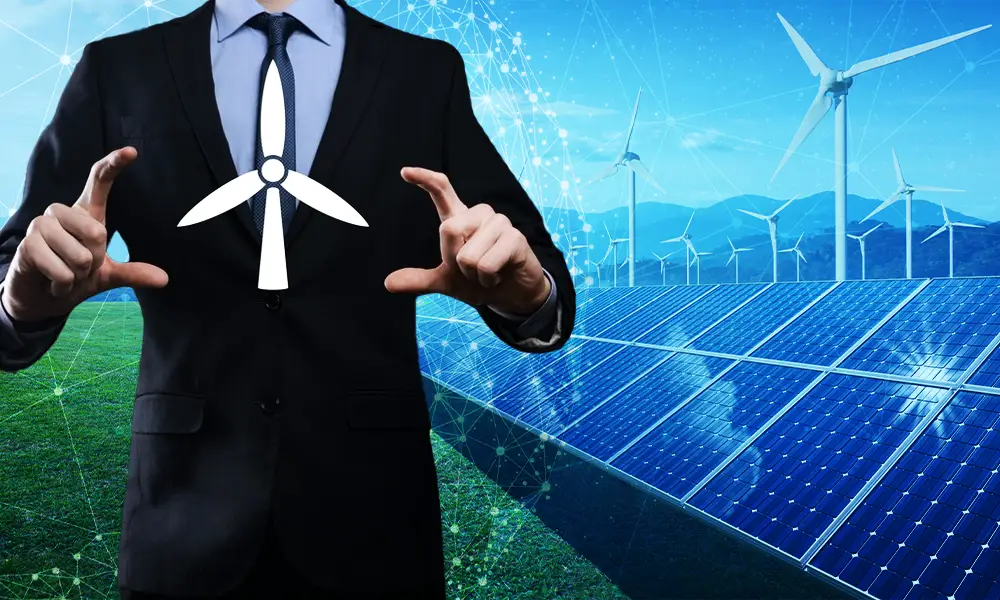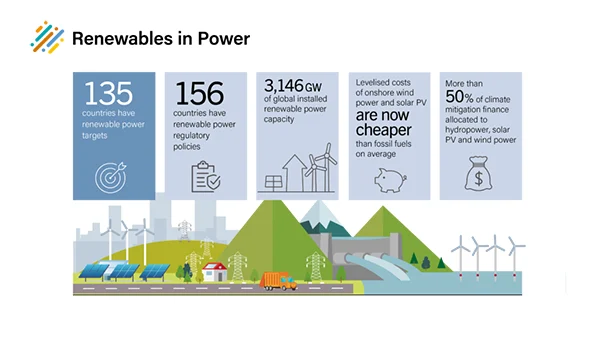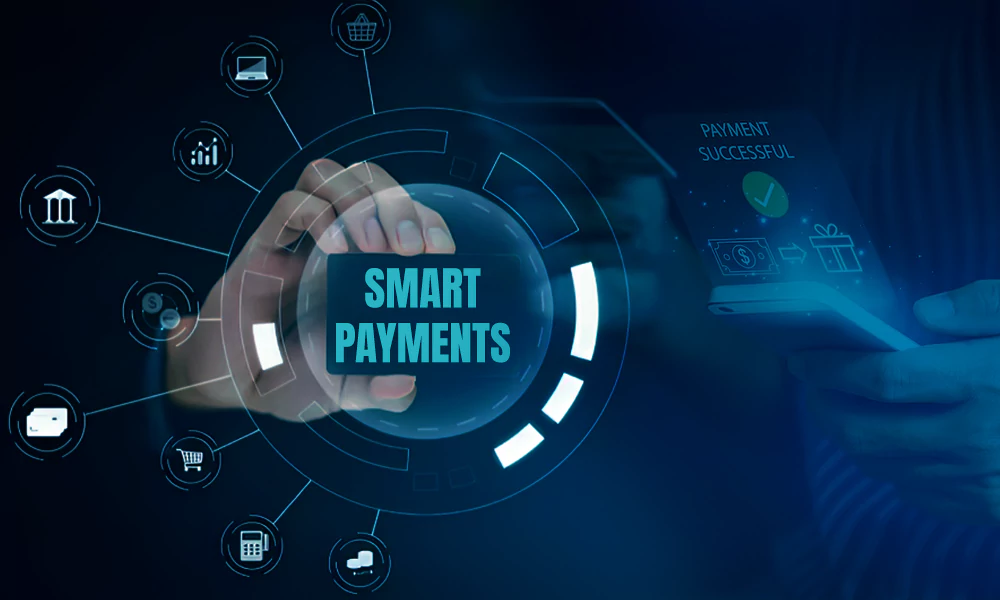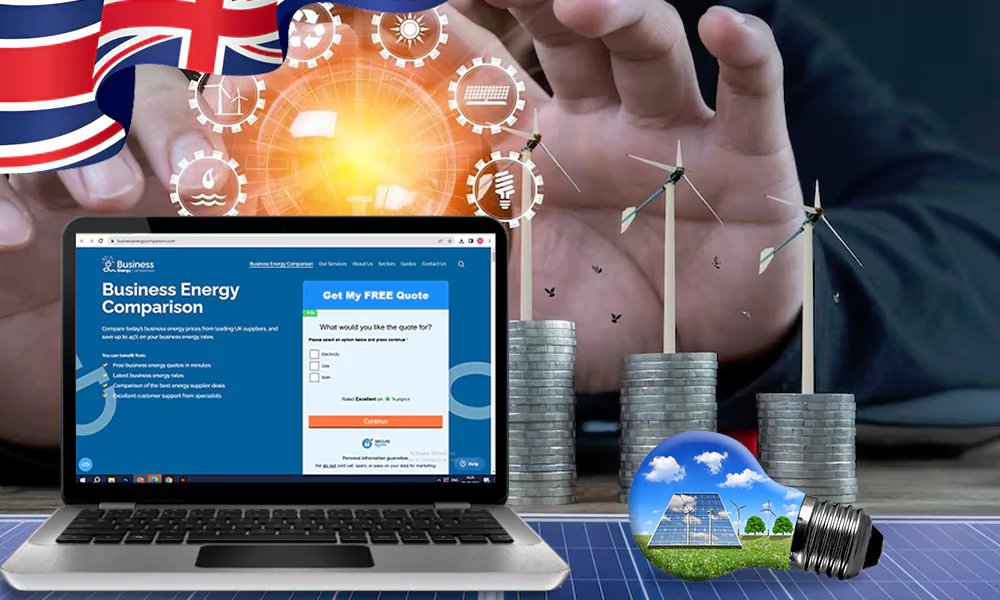Why Renewable Energy Makes Business Sense in the 21st Century

The world is undergoing an energy revolution. With a growing emphasis on sustainability, businesses are at the forefront of this change, looking for innovative ways to reduce their carbon footprints.
But this shift isn’t just about environmental responsibility – it’s also about smart economics.
Here’s why renewable energy is not only a responsible choice but also a sensible one for businesses in the 21st century.
Cost Savings and Stability
Renewable power sources, such as solar and wind, have seen significant technological advancements. These improvements have led to a dramatic reduction in costs.
Today, solar panels and wind turbines are not only more efficient but also more affordable than ever before as part of a reliable energy plan. As a result, businesses that invest in these technologies often experience substantial long-term savings.
DID YOU KNOW?
Wind and solar power are the newest forms of renewable energy generation, but they are quickly moving forward with their production doubling to 8% of global renewable generation in 2018 from 4% in 2011.
What’s more, traditional electricity prices are volatile. Their costs fluctuate based on geopolitical events, supply chain disruptions, and changing regulatory landscapes. In contrast, renewable energy offers price stability. Sun and wind are free, and once the infrastructure is in place, businesses can anticipate steady power costs.
Branding and Reputation
Today’s consumers are knowledgeable, and value driven. They’re seeking out companies that reflect their beliefs and are willing to support businesses that take proactive measures to protect our planet. By adopting renewable electricity, businesses can strengthen their branding efforts, aligning themselves with these consumer values.
A strong commitment to sustainability can significantly enhance a company’s reputation. It positions the brand as forward-thinking and socially responsible. In an age where consumers have ample choices, such positive brand associations can make all the difference.
Operational Resilience and Risk Mitigation
From wildfires to hurricanes, the increasing severity of climate-related disasters presents operational challenges for businesses. Power outages, supply chain disruptions, and infrastructure damage are just a few potential pitfalls. By transitioning to renewable energy, businesses can build resilience in the face of these challenges.
Decentralized electricity sources like solar panels can provide consistent power even when the traditional grid goes down. Plus, companies that reduce their reliance on fossil fuels are less exposed to potential regulatory risks or future carbon pricing mechanisms.
Attracting Talent and Boosting Employee Morale
The modern workforce is increasingly attuned to environmental and social issues. Many professionals, especially younger generations, prefer to work for companies that share their values.
Adopting renewable energy not only sends a positive signal to potential hires but can also boost the morale of existing employees. It encourages a sense of pride, knowing that your workplace is contributing to a larger global pool.
Long-Term Vision
The shift towards renewable energy is inevitable. Regulations are becoming stricter, fossil fuel reserves are finite, and the environmental consequences of their extraction and use are undeniable. Companies that move early in embracing renewables are not only positioning themselves as industry leaders but are also future-proofing their operations.
By integrating renewable energy sources now, businesses can avoid scrambling to adapt when the landscape changes. They’ll be well-prepared, having already developed the expertise, infrastructure, and systems required to operate efficiently in a renewable-powered world.
Harnessing Government Initiatives and Incentives
One of the driving forces behind the surge in renewable energy adoption is the robust support from governments worldwide. In many regions, governments are rolling out incentives, grants, and tax breaks to make the transition to renewable power is more financially viable for businesses. These incentives often cover a significant portion of the initial set-up costs, making it even more economical for companies to switch.
Plus, governments are investing heavily in research and development to propel advancements in renewable technologies. Collaborating with public sector projects or tapping into publicly funded research can provide businesses with cutting-edge solutions without the hefty price tag. This mutualistic relationship benefits the state by achieving its green targets and businesses by reducing costs.
Diversifying Energy Sources
While solar and wind are the frontrunners in the renewable electricity scene, several other sources are gaining traction. Geothermal, biomass, and tidal energy are among the alternatives companies are exploring. Each of these sources brings its unique advantages.

For example, geothermal energy, which harnesses the Earth’s natural heat, offers a consistent electricity supply, irrespective of weather conditions. Tidal energy, on the other hand, is incredibly predictable, aligning with the lunar cycle.
By diversifying energy sources, businesses can ensure a steady power supply, mitigating the intermittent nature of certain renewables.
Opportunities for Expansion and Innovation
The renewable energy sector is teeming with innovation. From efficient storage solutions, like advanced battery technologies, to smart grids that better distribute power, the opportunities for businesses to expand and innovate within this space are vast.
Companies can leverage these innovations not only to enhance their primary business operations but also to diversify into new segments. For example, a firm specializing in logistics might delve into the development of electric vehicle charging stations, capitalizing on the EV boom.
Sustainability as a Competitive Edge
While much is said about attracting individual consumers through green initiatives, there’s also a significant shift in the B2B landscape. Companies are increasingly evaluating their partners and suppliers based on sustainability metrics. Renewable energy adoption, therefore, isn’t just a magnet for consumers but also for potential business partners.
Engaging in sustainable practices can lead to increased trust and more robust partnerships. It’s an aspect that many companies now prioritize, understanding that a sustainable supply chain can reduce risks, enhance brand image, and open doors to collaborations with industry leaders committed to green initiatives.
The Ripple Effect
When a business chooses to embrace renewable energy, the impact is not confined to its immediate operations. There’s a ripple effect. Stakeholders, from suppliers to customers, take notice.
It can lead to suppliers considering a switch, competitors re-evaluating their strategies, and community leaders advocating for broader renewable adoption.
With all its advantages, renewable energy is more than a mere trend – it’s a fundamental shift in how businesses view and manage their resources. From tapping into incentives to innovating within the green tech space, the possibilities are endless.
Businesses that strategically weave renewables into their operations don’t just directly benefit; they become catalysts for broader change, setting the tone for a sustainable, interconnected future.
- Cost Savings and Stability
- Branding and Reputation
- Operational Resilience and Risk Mitigation
- Attracting Talent and Boosting Employee Morale
- Long-Term Vision
- Harnessing Government Initiatives and Incentives
- Diversifying Energy Sources
- Opportunities for Expansion and Innovation
- Sustainability as a Competitive Edge
- The Ripple Effect










